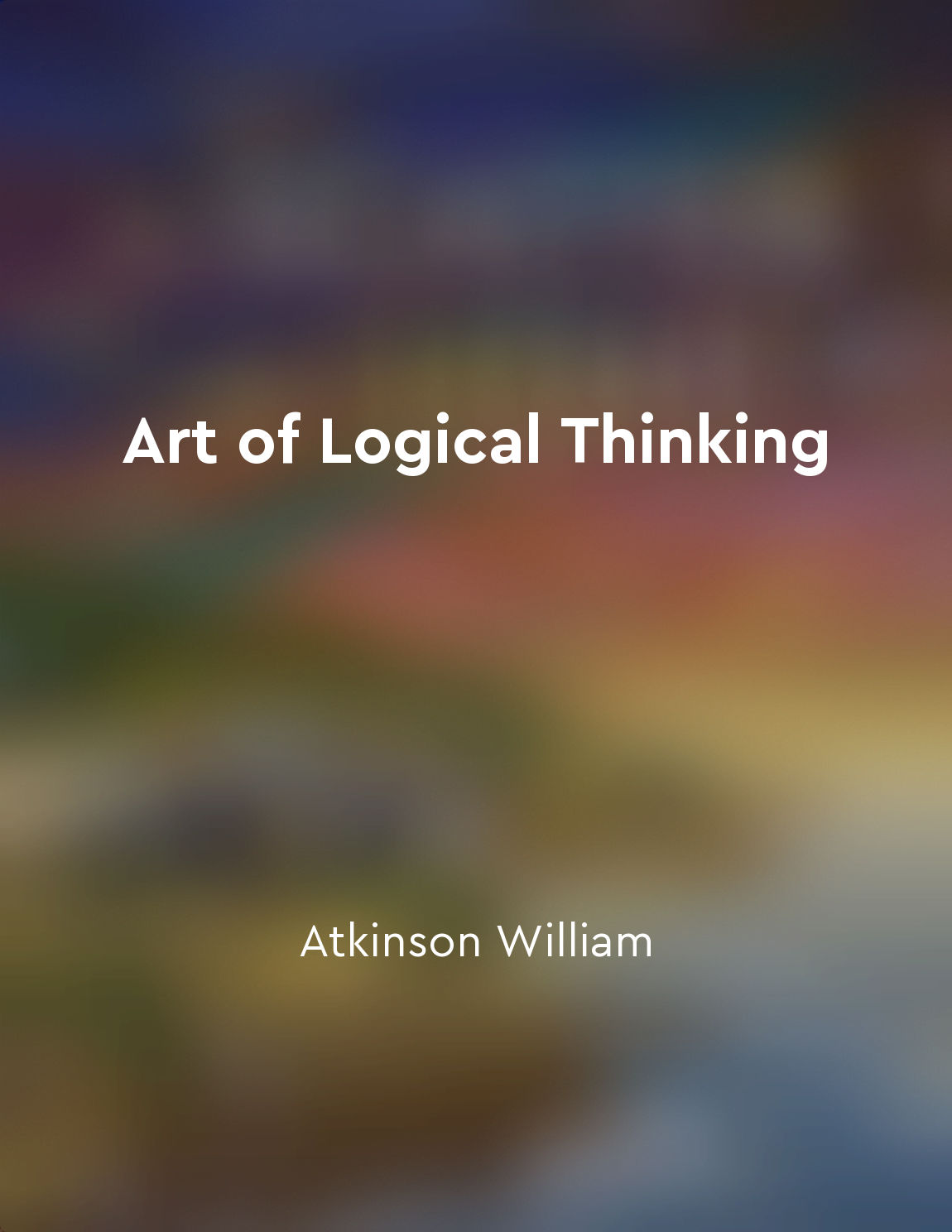Audio available in app
Biases can cloud logical thinking from "summary" of Art of Logical Thinking by Atkinson William
When we allow biases to influence our thinking, we are essentially allowing our judgment to be clouded by preconceived notions, emotions, or personal beliefs. These biases can prevent us from approaching a situation objectively and can lead us to make illogical or irrational decisions. For example, confirmation bias is a common bias where we seek out information that confirms our existing beliefs while ignoring evidence that contradicts them. This can lead us to overlook important facts or data that could change our perspective on a situation. Similarly, availability bias occurs when we rely on information that is readily available to us, rather than seeking out all relevant information before making a decision. Emotional biases can also cloud our logical thinking, as our feelings and emotions can influence our judgment in ways that may not be rational. For instance, if we have a strong emotional attachment to a particular idea or outcome, we may be more likely to overlook flaws in our reasoning or ignore evidence that goes against our desired outcome. Cultural biases can also play a role in clouding our logical thinking, as our upbringing, background, and societal influences can shape the way we interpret information and make decisions. These biases can prevent us from seeing things from different perspectives or considering alternative viewpoints that may challenge our assumptions.- It is important to be aware of our biases and actively work to overcome them in order to think more logically and rationally. By critically examining our beliefs and being open to new information, we can improve our ability to make sound judgments and decisions based on reason and evidence rather than personal biases.


